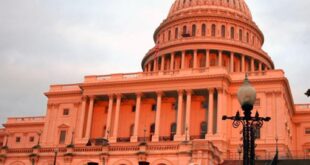BAGHDAD (Reuters) – The movement of Iraqi Shi’ite cleric Moqtada al-Sadr will not compete in local elections under its own name but join with other groups and ask its followers to vote for those candidates, Sadr officials said on Sunday.
Salah al-Ubaidi, the chief spokesman for the anti-American cleric, denied reports the group was boycotting the polls, which are scheduled for October 1 and seen as the battleground for a power struggle that could redraw Iraq’s political map.
The move by the opposition Sadr bloc would be a way to get around a draft elections law that is expected to ban any group that has a militia from taking part in the polls.
Shi’ite Prime Minister Nuri al-Maliki has demanded Sadr disband his Mehdi Army, a militia blamed for widespread sectarian attacks in 2006 and 2007.
Sadr has refused, but has urged his followers to observe a truce with Iraqi forces in the wake of crackdowns that targeted the militia in Baghdad and Shi’ite southern Iraq.
Iraqi forces are preparing for another offensive, this time in the southern city of Amara, which is a Sadr stronghold.
Ubaidi said the movement had made the decision because it did not want to “politicise” the polls. He did not elaborate.
“We will not take part in the coming elections under the name of the Sadr bloc list. We will call our candidates to participate in joint lists and we will call our followers to vote for them,” Ubaidi told Reuters.
FOSTERING RECONCILIATION
The movement’s candidates could join with the heads of tribes, technocrats, politicians or social figures, he said.
The Sadrists boycotted the last provincial elections in January 2005 and have been expected to make gains at the expense of Shi’ite parties supporting Maliki, especially in the south where the performance of local governments have been criticized.
Luwaa Sumaisem, head of the Sadr bloc’s political committee, said the movement would urge its followers to vote for candidates “we believe will serve our policy and the people”.
He denied the decision had anything to do with the draft elections law.
While Iraq has set October 1 as the poll date, U.S. officials have said there could be delays. An elections law has yet to be passed and officials say they will need months to prepare.
Washington says the elections will foster reconciliation by boosting the participation of minority Sunni Arabs in politics. Sunni Arabs, who also boycotted the January polls, are under- represented in areas where they are numerically dominant.
But many fear conflict in the south, where the Sadrists and the Supreme Islamic Iraqi Council, which backs Maliki, are vying for influence in a region home to most of Iraq’s oil production.
The Sadrist movement has accused Maliki of using the crackdown on Shi’ite militias to try to weaken it ahead of the elections. Maliki has said he is imposing law and order.
The announcement by Sadr’s aides came two days after the cleric said only a select group of his Mehdi Army should fight U.S. forces in Iraq.
Sadr said most of his supporters should work against Western cultural, social and religious domination. Anyone who disobeyed would not be considered part of the movement, he said.
That appeared to be an attempt by Sadr to reduce confrontation with the government by limiting the number of armed militia under his command.
 Eurasia Press & News
Eurasia Press & News



